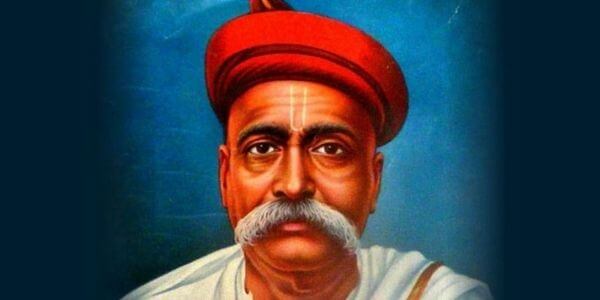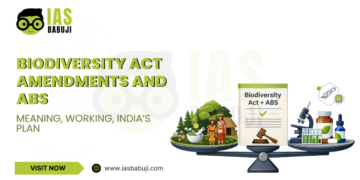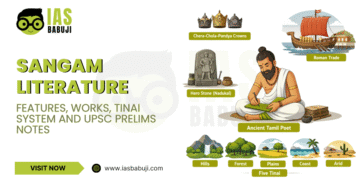Bal Gangadhar Tilak was an influential figure in the Indian Independence Movement. He is sometimes referred to as the “Father of Indian Unrest.” We’ll talk about Bal Gangadhar Tilak’s life, Lokmanya Tilak’s “Swaraj is my birthright, and I shall have it” slogan, books, and other relevant information. This material would be very useful to aspirants studying for the IAS Exam. let us get this started.
Who was Bal Gangadhar Tilak?
Bal Gangadhar Tilak, also known as Lokmanya Tilak, was a member of the radical side of the Indian independence struggle. He was dubbed the “Father of Indian Unrest” by some. Tilak was born in Ratnagiri to a Chitpavan Brahmin family (Bombay presidency). Gangadhar Tilak, his father, was a Sanskrit scholar and teacher who died when Tilak was 16 years old. In 1877, he graduated with honors from Deccan College in Pune with a Bachelor of Arts degree in Mathematics. Tilak earned an LL. B from Government Law College in 1879 and founded the Deccan Education Society in 1884 to instill nationalist values in young people. He was a founding member of Fergusson College in Pune. He worked as a math teacher in his early years. In 1871, Tilak married Tapibai (later renamed Satyabhamabai).
Ideology
- He was a dedicated Hindu who awakened people to fight oppression by quoting Hindu scriptures.
- The importance of self-rule was emphasized, and it was believed that without self-rule or swarajya, no development could be made.
- “Swaraj is my birthright, and I will have it!” says the slogan.
- Tilak was dubbed the “Father of Indian Unrest” in an English journalist Valentine Chirol’s book “Indian Unrest.”
- The significance of a cultural and religious renaissance in tandem with political movements was emphasized.
- In Maharashtra, he popularised the Ganesh Chaturthi event.
- On the birth anniversary of the ruler Chhatrapati Shivaji, he advocated for the observance of Shiv Jayanti.
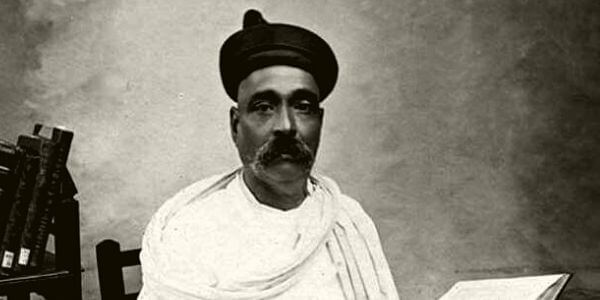
Bal Gangadhar Tilak’s Political Life
Tilak was one of the most vocal proponents of total independence, or swarajya (self-rule). Tilak was elected to Congress in 1890. Bal Gangadhar Tilak was opposed to moderate ways and viewpoints, and he took a more radical and militant anti-British posture. Tilak was a pioneer in the movement for Swaraj, or self-rule. “Swaraj is my birthright, & I shall have it,” he declared. He believed that without self-rule, no development could be made. He was a member of the INC’s radical faction and a supporter of boycotts and Swadeshi activities.
Political Rights
- In Marathi, he published Kesari, and in English, Mahratta. In these publications, he was unafraid to criticize the administration.
- On allegations of “incitement to murder,” he was sentenced to 18 months in prison. He had written that oppressors’ killers could not be blamed, invoking the Bhagavad Gita. Following this, two British officials were slain by two Indians in vengeance for the government’s “tyrannical” policies during the bubonic plague outbreak in Bombay.
- He was dubbed the ‘Lal-Bal-Pal’ triad of hardline leaders, together with Bipin Chandra Pal and Lala Lajpat Rai.
- He was prosecuted multiple times for sedition. From 1908 to 1914, he was imprisoned in Mandalay for six years for writing papers defending Prafulla Chaki and Khudiram Bose. They were rebels who had murdered two English women by detonating a bomb in the carriage they were riding in. Chaki and Bose had assumed it was Magistrate Douglas Kingsford who was present.
- Tilak rejoined the INC in 1916 after a period of separation.
- Along with Annie Besant & G.S. Khaparde, he was one of the All India Home Rule League founders.
- Tilak drew extensively on old Hindu scriptures for his political views.
- Lokmanya Tilak urged people to be proud of their ancestors. He was opposed to society’s overt westernization.
- Lokmanya Tilak made a social and public Ganesh festival out of a basic Ganesh Puja performed at home.
- He used the Ganesh Chaturthi and Shiv Jayanti (the birth anniversary of Shivaji) celebrations to bring the people together and instill a sense of national pride. Unfortunately, this action alienated him from non-Hindus.
- Since 1894, he has popularised the Sarvajanik Ganeshotsav, which is today one of Maharashtra’s most important celebrations.
Views on Women’s Rights
Bal Gangadhar Tilak’s Women’s Rights Opinions
- Tilak wants to raise the marriage age from 16 for girls and 20 for boys, and he wants to raise the age strategy for women from 10 to 12 years old.
- He was also opposed to intercaste marriage, particularly when a woman from a higher caste married a man from a lower caste.
- At the age of 15, he personally planned his own daughter’s marriage.
These notes will also come in handy for other competitive exams such as banking PO, SSC, and state civil service exams. Remember to have a peek at this another key UPSC topic – The Iron Man of India, Sardar Vallabhbhai Patel, was India’s first home minister.
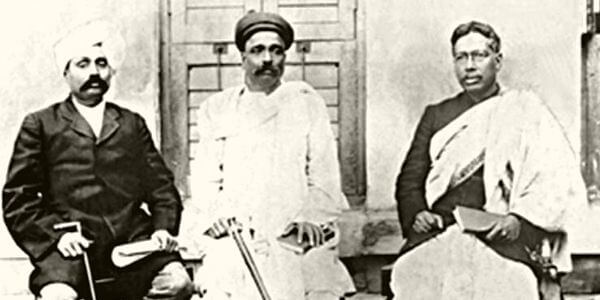
Books Written by Bal Gangadhar Tilak
Bal Gangadhar Tilak writes the two main Books:
- The Arctic Home of the Vedas
- Gita Rahasya
In 1909 Tilak published “The Arctic Home in the Vedas” Lokmanya Tilak claimed that the Vedas could only have been written in the Arctics and that the Aryan bards brought them south once the previous ice age ended. He presented a new method for determining the Vedas’ exact time. He attempted to calculate the time of the Vedas using the positions of different Nakshatras in “The Orion.” Many Vedas describe the Nakshtras’ positions. Tilak wrote “Shrimadh Bhagavad Gita Rahasya,” a Bhagavad Gita explanation of “Karma Yoga,” which is regarded as a gift of the Vedas and Upanishads, while in captivity at Mandalay.
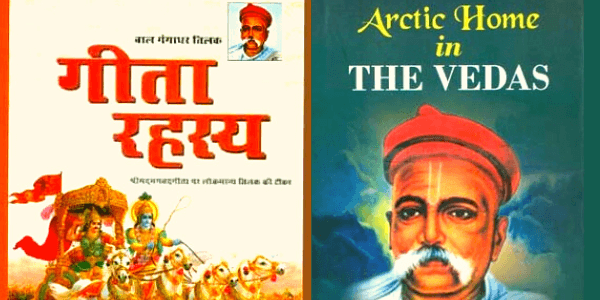
Contribution to Freedom Movement
Swadeshi campaigns were promoted, and people were encouraged to boycott foreign goods.
The Indian Home Rule Movement was modeled after the Irish Home Rule Movement in British India.
It is thought to have set the foundation for the independence struggle for educated English-speaking upper-class Indians under the leadership of Annie Besant and Bal Gangadhar Tilak, which began in 1916.
Tilak founded the All India Home Rule League in Belgaum in April 1916.
It was successful across Maharashtra (with the exception of Bombay), the Central Provinces, Karnataka, and Berar.
The Lucknow Pact (1916) was an agreement between Tilak’s INC and Muhammad Ali Jinnah’s All-India Muslim League for Hindu-Muslim unity in the nationalist movement.
Important Points
- The first leader of the Indian freedom struggle, Lokmanya Bal Gangadhar Tilak, was dubbed the “Father of Swaraj.”
- Tilak is in charge of the Ganesh Chaturthi and Shivaji Jayanti festivals.
- Tilak founded the Indian Home Rule League and served as its president.
- The first leader of the Indian independence struggle was Bal Gangadhar Tilak.
- The British termed Bal Gangadhar Tilak “the father of Indian unrest.”
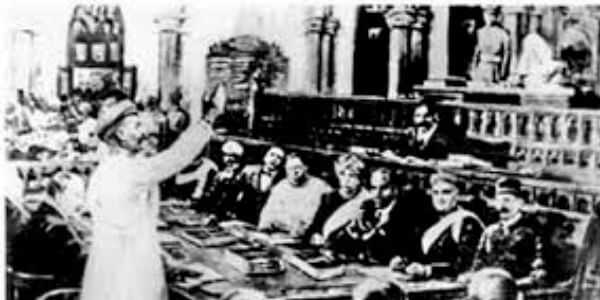
Conclusion- Bal Gangadhar Tilak
We’ve spoken about his works, and his Swaraj is my birthright slogan, Bal Gangadhar Tilak’s books, and The Father of Indian Unrest in this post. While reading the text, try to note down all of the key information because this is a vital topic for your IAS preparation. Lokmanya Tilak would be considered a superb political economist today since he recognized the linkages between culture, economics, and politics and created the foundation for India’s freedom movement. Tilak is credited with ensuring that Indians receive a solid education. Tilak also influenced how women perceive themselves in society. He forced women to make their own decisions and provided them with knowledge. To acquire the most up-to-date information about the IAS exam, one must visit the official website. To learn more, go to this page.
FAQ- Bal Gangadhar Tilak
In 1916, Lokmanya Tilak initially said in Belgaum 1916, “Swaraj is my birthright, and I shall have it.”
The first leader of the Indian independence struggle was Keshav Gangadhar Tilak, often known as Bal Gangadhar Tilak. He was dubbed “The Father of Indian Unrest” and given the title of Lokmanya, which means “recognized as a leader by the people.”
Bal Gangadhar Tilak died on August 1, 1920, in Bombay, at the age of 64, after a brief illness.
Bal Gangadhar Tilak’s contributions include:
– Establishing patriotism in the masses.
– Introducing the Trisutri program for national awakening.
– Initiating the Indian National Congress’s extremist phase.
– Started the Swadeshi movement in 1905.
– Co-founded the Home Rule movement with Annie Basant and G.S. Khapadre.
Editor’s Note | Bal Gangadhar Tilak
You will learn about Bal Gangadhar Tilak’s life, book, slogan (Swaraj is my birthright), and The Father of Indian Unrest after reading the entire article. This essay will not only save you time, but it will also help you understand your concepts better. Bal Gangadhar Tilak NCERT Notes are very important for aspirants to study hard and master the essential concepts. It will be sufficient for the exam if you know the essentials. Remember to study hard and give it your all. Finally, best wishes for your upcoming exam.

